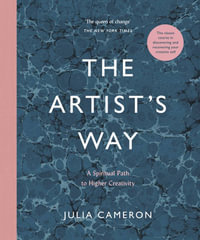More than three thousand different images appeared on United States postage stamps from the middle of the nineteenth century to the end of the twentieth. Limited at first to the depiction of a small cast of characters and patriotic images, postal iconography gradually expanded as the Postal Service sought to depict the country and its history in all its diversity. This vast breadth has helped make stamp collecting a widespread hobby and led many people to see stamps as consumer goods in their own right.
Examining the canon of nineteenth- and twentieth-century American stamps, Laura Goldblatt and Richard Handler show how postal iconography and material culture offer a window into the contested meanings and responsibilities of U.S. citizenship. They argue that postage stamps, which are both devices to pay for a government service and purchasable items themselves, embody a crucial tension: is democracy defined by political agency or the freedom to buy? The changing images and uses of stamps reveal how governmental authorities have attempted to navigate between public service and businesslike efficiency, belonging and exclusion, citizenship and consumerism. Stamps are vehicles for state messaging, and what they depict is tied up with broader questions of what it means to be American.
Goldblatt and Handler combine historical, sociological, and iconographic analysis of a vast quantity of stamps with anthropological exploration of how postal customers and stamp collectors behave. At the crossroads of several disciplines, this book casts the symbolic and material meanings of stamps in a wholly new light.
Industry Reviews
In this thrilling account of United States postage stamps, Goldblatt and Handler show us that enduring national myths are inextricably bound up with racial segregation, settler colonialism, and consumerism. Beautifully written and compellingly argued, this book shows that the United States postage stamp is as complex, fraught, and contradictory as the nation itself. -- Elizabeth Chin, author of My Life with Things: The Consumer Diaries
The American Stamp describes in layered detail how postage stamps perform the "ideological magic" of making one people out of all these raced, classed, and gendered addresses and pieces of paper. It is materialist analysis at its most unforgettable. -- Laura Wexler, author of Tender Violence: Domestic Visions in an Age of U. S. Imperialism
Goldblatt and Handler offer an original and well documented interpretation of U.S. postage stamps that will be of interest to a wide array of audiences: stamp collectors and postal historians, to be sure, but also anyone interested in the construction and transformation of U.S. citizenship, consumerism, and popular representation. This book makes a fascinating and important contribution to the literature on nationalism, citizenship, and collecting. -- Pauline Turner Strong, author of American Indians and the American Imaginary: Cultural Representation Across the Centuries
Given email, supply chain setbacks, and fears of mail-in ballot corruption, many would consider a stamp the relic of a dying era. But Goldblatt and Handler powerfully bring the stamp back to life as an unrecognized measure of American democracy's future and not just its past. In The American Stamp we find a timely and historically rigorous examination of the consumer republic and its limits. -- Davarian Baldwin, author of In the Shadow of the Ivory Tower: How Universities Are Plundering Our Cities
























